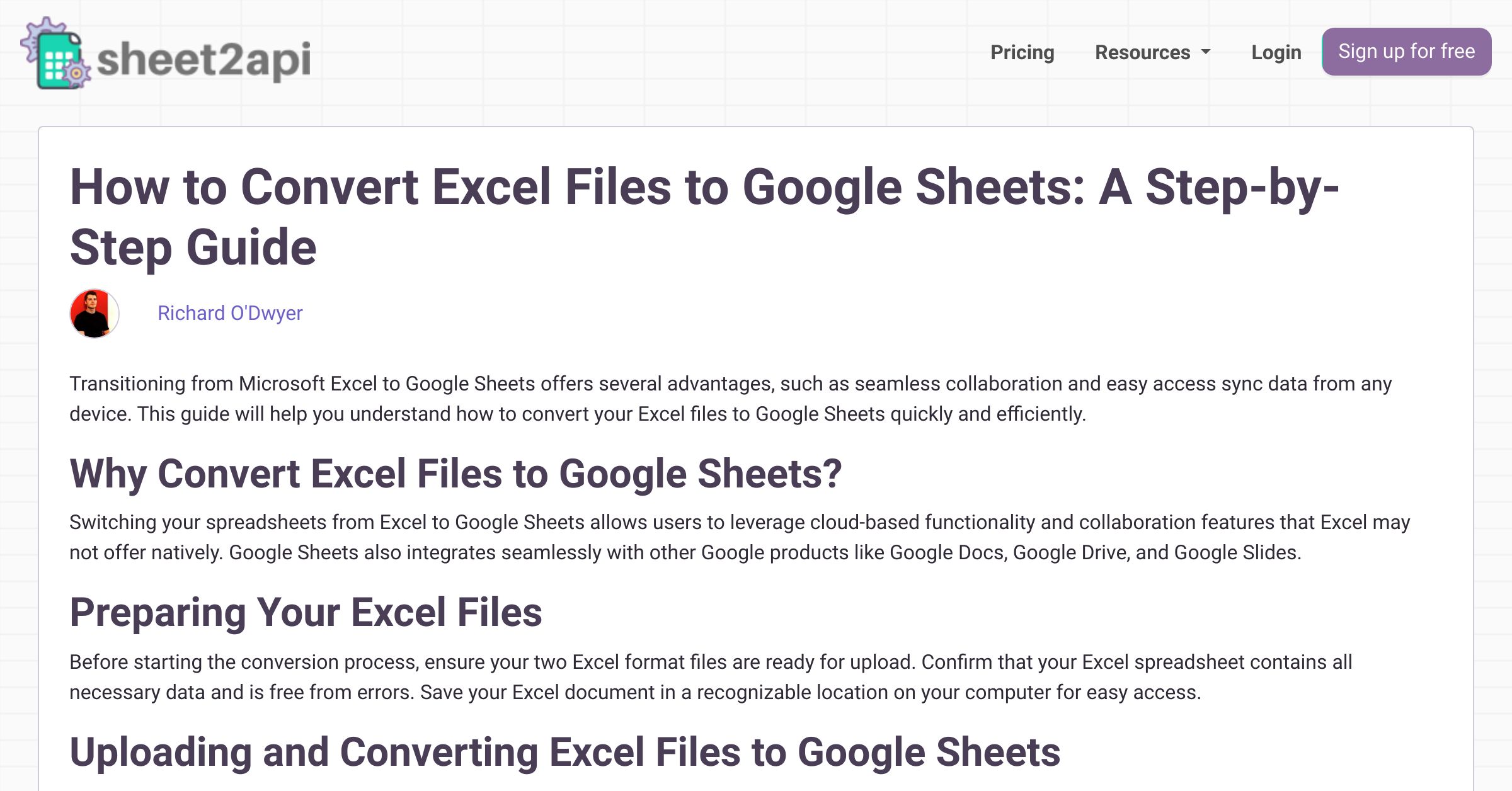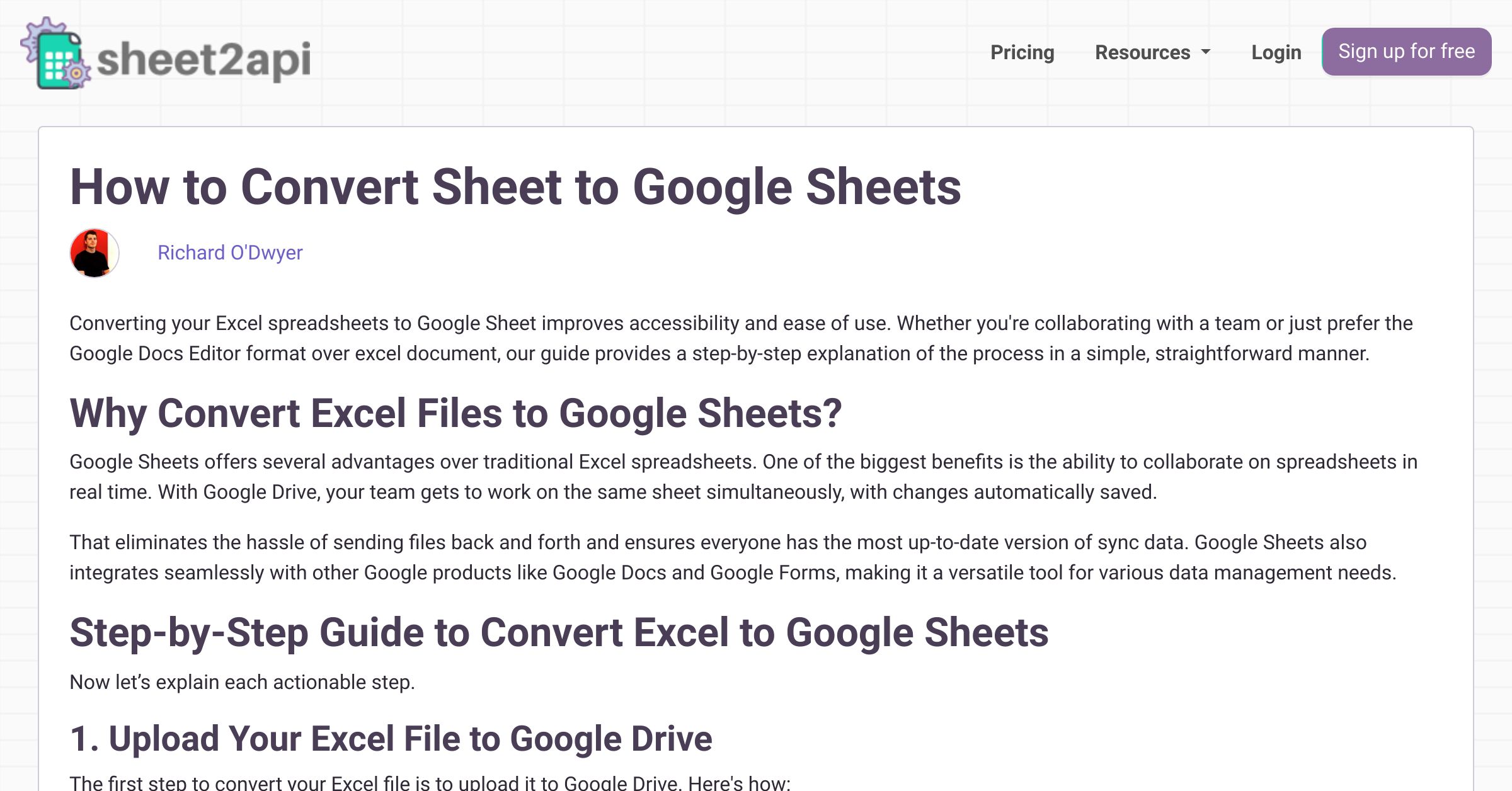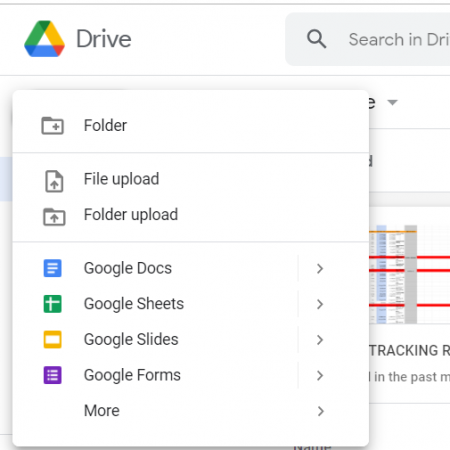Convert Excel CSV to Google Sheets Easily

If you find yourself needing to work collaboratively on spreadsheet data, converting an Excel or CSV file to Google Sheets is an excellent move. Google Sheets provides a robust platform for real-time collaboration, seamless cloud storage, and accessibility from anywhere with internet access. Here's how you can convert your Excel or CSV files to Google Sheets with ease:
Step 1: Upload Your File to Google Drive

The first step in converting your Excel or CSV file to Google Sheets is to upload it to Google Drive:
- Log in to your Google Drive account.
- Click on the New button on the left side of the interface.
- Select File upload or drag and drop your file directly into Drive.
- Wait for the upload to complete; Google Drive supports files up to 5TB in size.
🚀 Note: Ensure your internet connection is stable for a smooth upload experience.
Step 2: Open the File in Google Sheets

Once your file is uploaded:
- Locate the file in your Google Drive.
- Right-click on the file, hover over Open with, and select Google Sheets.
This action will open the file in Google Sheets, and you’ll see a notification asking if you’d like to import the data. Choose Yes to proceed.
🔔 Note: If the file is an Excel (.xlsx) format, Google Sheets will open it directly. CSV files will prompt you to choose the delimiter.
Step 3: Check and Adjust Data

After the file is open in Google Sheets:
- Review the data to ensure everything has been imported correctly.
- If you find any discrepancies, you might need to:
- Adjust cell formatting.
- Check for correct data types.
- Ensure all delimiters in CSV files are correctly interpreted.
Step 4: Convert to Google Sheets Format

To permanently convert your file to Google Sheets format:
- Go to File > Save as Google Sheets.
- This will create a copy of your file in Google Sheets format.
Now, your file is not just open in Google Sheets; it's been converted to its native format, which supports all Google Sheets functionalities.
Step 5: Share Your Google Sheet

Once you have your Google Sheet, you can start collaborating:
- Click the Share button in the top right corner.
- Enter email addresses of your collaborators or generate a shareable link.
- Set the permissions: Viewer, Commenter, or Editor.
Collaborators can now edit, comment, or view the sheet in real-time, providing a seamless collaborative environment.
Advanced Conversion Options

For those who frequently convert files or need more control:
- Using Google Apps Script for automated conversion.
- Using ImportRange to pull data from other sheets.
- Setting up Triggers for scheduled file conversions.
These advanced options require some programming knowledge but can significantly enhance productivity when dealing with large datasets.
In the process of converting Excel or CSV files to Google Sheets, you’ve gained the advantage of cloud-based collaboration. Your data is now accessible from any device with internet access, you can easily share and work with others, and the integration with other Google services enhances your workflow. Whether you’re managing a business, working on a project, or handling personal finance, Google Sheets provides tools and features that can streamline and elevate your data management experience.
Can I convert multiple files at once?

+
Yes, you can select multiple files in Google Drive, right-click, and choose ‘Open with’ > ‘Google Sheets’ for each to convert them individually. However, there isn’t a native batch conversion tool in Google Drive, but you can use Google Apps Script for automated conversion processes.
What happens to my Excel formulas and macros?

+
Google Sheets supports most Excel formulas, but some functions might not work exactly the same way or have different names. Macros and VBA code don’t convert automatically; you’ll need to recreate them using Google Apps Script, which is different from VBA.
How do I handle large files during conversion?

+
For large files, ensure a stable internet connection and allocate sufficient time for the upload and conversion process. If you encounter issues, split the file into smaller parts or consider using Google Drive’s desktop application to handle bulk uploads more efficiently.